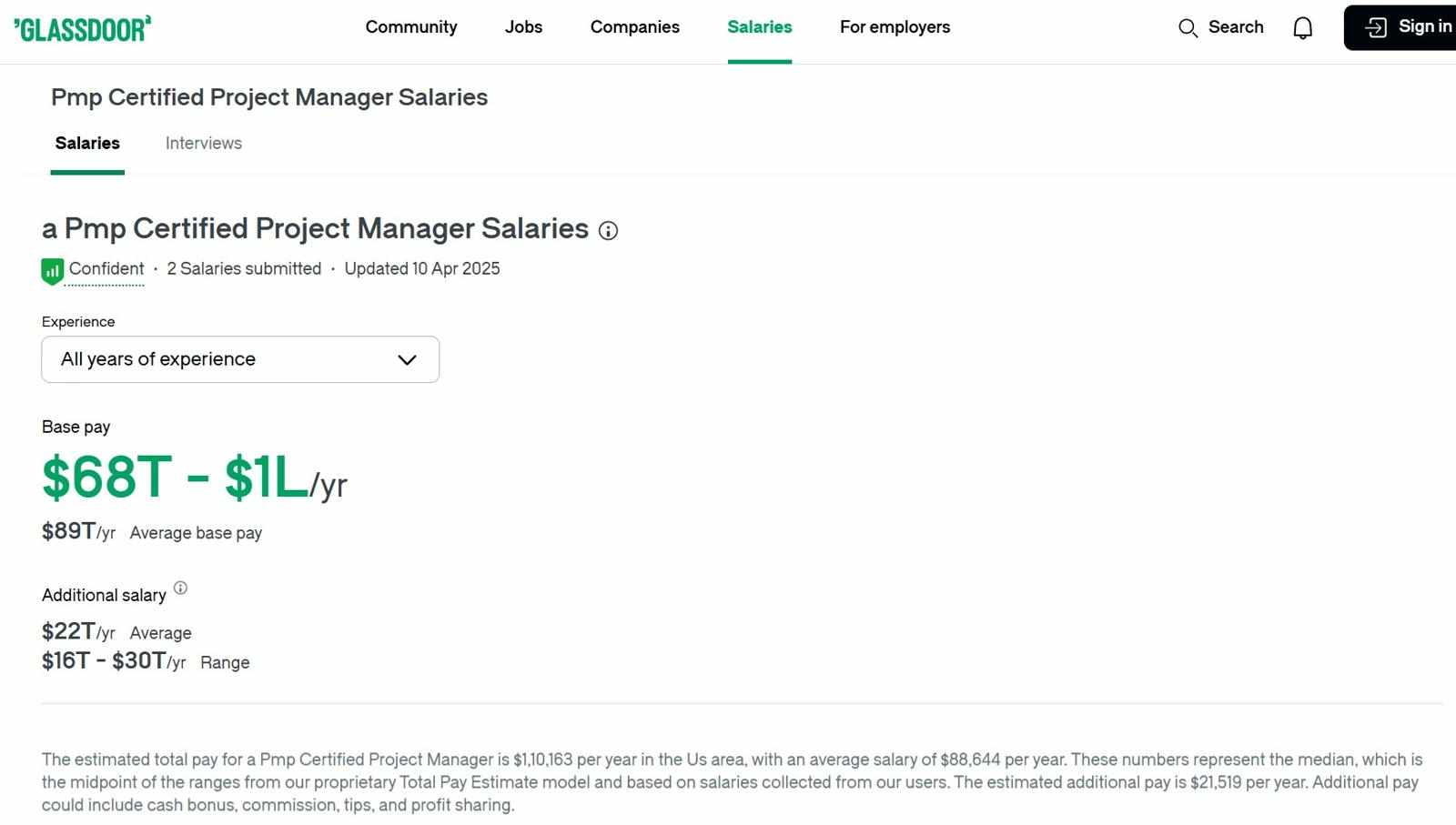
In today's dynamic corporate world, the ability to manage complex projects across teams, timeframes, and budgets is more critical than ever. As firms want talented individuals who can lead with precision, PMP training - provided by globally recognized programs such as the Coursera PMP certification training course - has emerged as a potent career accelerator.

According to PMI's 2023 Talent Gap Report, an estimated 2.3 million new project management positions would be required annually until 2030. This development highlights the increasing demand for professionals with both strategic and operational expertise.
Completing a PMP certification training course does more than just improve your project management skills; it also qualifies you for a number of high-impact professions across sectors.
Let's look at the best employment opportunities available after completing PMP certification training and how this certificate will enhance your professional destiny.
1. Project Manager
A job as a Project Manager is the most direct way to move forward after taking training in project management. These people are in charge of making sure that projects are planned, carried out, and finished on time and within budget.
The most important duties of a project manager include the following:
Making plans for projects
In charge of supplies and budgets
Getting stakeholders to work together
Finding risks and reducing them
Glassdoor says that the total pay for a PMP-certified project manager in the U.S. is $1,10,163 per year, which is a lot more than the salaries of their non-certified peers.

2. Program Manager
Many professionals move into the job of Program Manager after working on individual projects for a while. In this job, you'll be in charge of a group of projects that are all connected and work with the company's long-term goals.
What does PMP training do for you?
PMP project management training makes you better at managing dependencies, allocating shared resources, and keeping an eye on risks and rewards at the program level, all of which are important skills for this job.
3. Project Coordinator
The Project Coordinator job is a good place to start if you're new to the job market or coming from a different area. This job takes care of paperwork, plans, and other office work that helps project managers.
Even entry-level candidates can show they understand structured methods, workflows, and communication frameworks by getting PMP training and certification. This makes them more competitive when hiring.
4. Project Analyst
The Project Analyst job is perfect for people who are good at math and want to focus on making projects run better. You will help make budgets, write reports, and keep an eye on project data.
What makes you unique?
You'll be able to analyze key performance indicators (KPIs), understand project life cycles, and use PMBOK best practices to get the best results from your projects after taking PMP certification courses on Coursera.
5. Operations Manager
People who have a PMP certification often move on to become Operations Managers, especially in IT, manufacturing, and transportation. For these jobs, you need to be good at managing resources, communicating with stakeholders, and overseeing projects.
With PMP Coursera training, you'll be ready to lead cross-functional teams, oversee large-scale operations with a project-based attitude, and run continuous improvement programs.
6. Agile Project Manager or Scrum Master
People are increasingly interested in agile methods, and more and more PMP-certified professionals are taking on roles such as Scrum Master or Agile Project Manager (PM).
A PMP training gives you the skills and knowledge you need to confidently lead these agile projects.
7. Project Consultant
Senior employees or freelancers with a PMP certification can work as Project Consultants and help companies improve their processes, plan their strategies, and get back on track with projects.
By getting your PMP certification, you show clients that you follow widely recognized standards like those in PMI's PMBOK guide. This makes you more valuable as an independent expert.
Industries That Value PMP Certified Professionals
Taking a project management professional course by Learnkarts to get your PMP certification opens doors in many fields, including:
IT and software
Pharmaceuticals and Healthcare
Building and Engineering
Money and Banking
Services for the public and government
Power and utilities
This usefulness across industries makes sure that the money you spend on PMP training and certification will pay off in the long run.
In Conclusion: Protect Your Career for the Future with PMP Skills
The PMI PMP certification gives you the skills and credibility you need to achieve whether you want to move up in your company, switch industries, or become a freelance consultant. It provides a structured way to handle complexity, lead teams, and achieve measurable results, all skills that employers in every business are looking for.
With so many important job opportunities out there, which PMP-powered role are you ready to apply for?







Write a comment ...